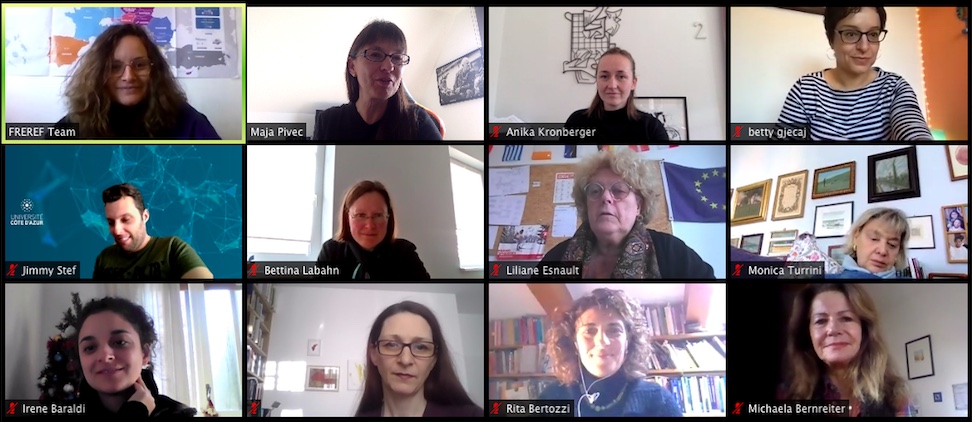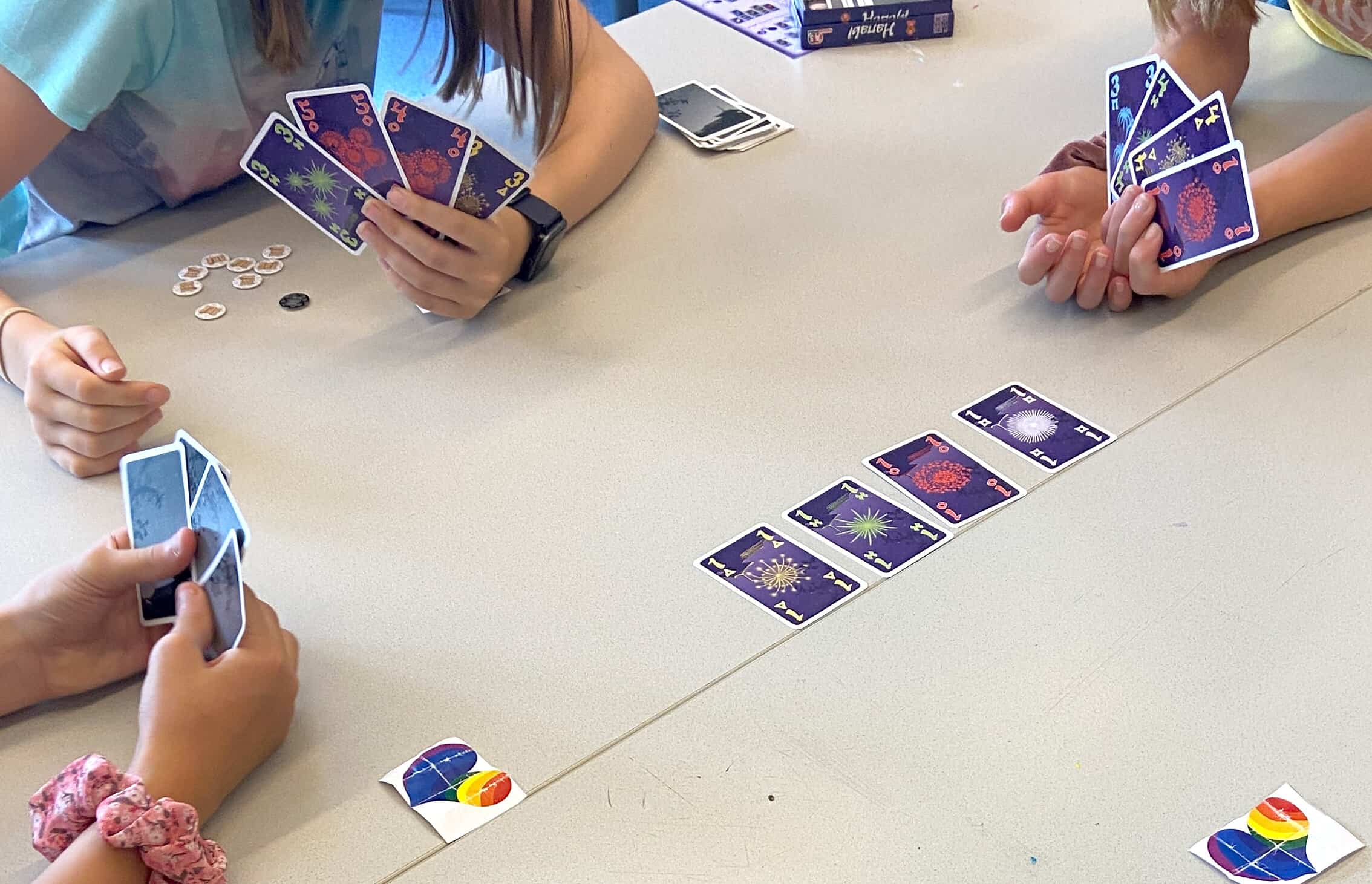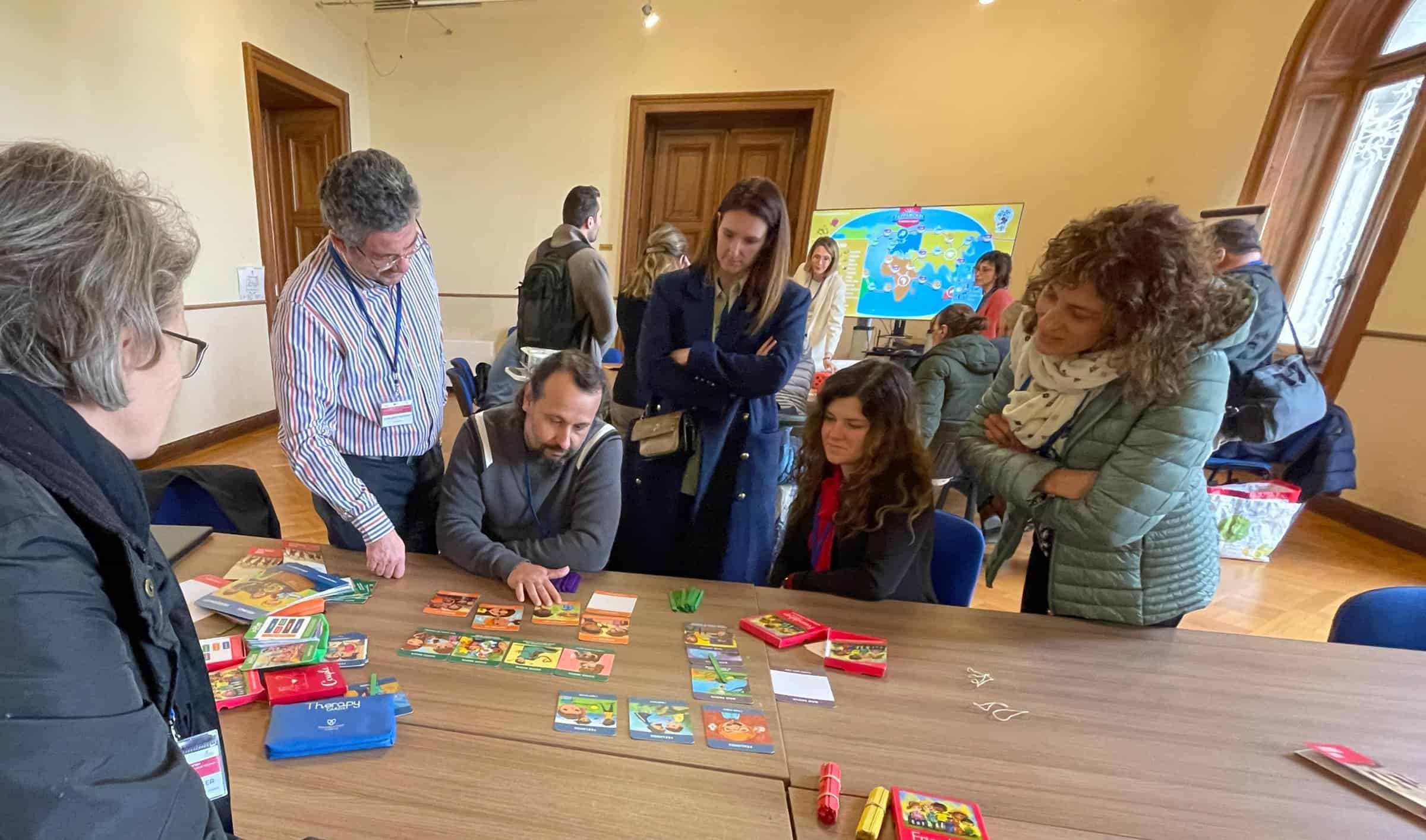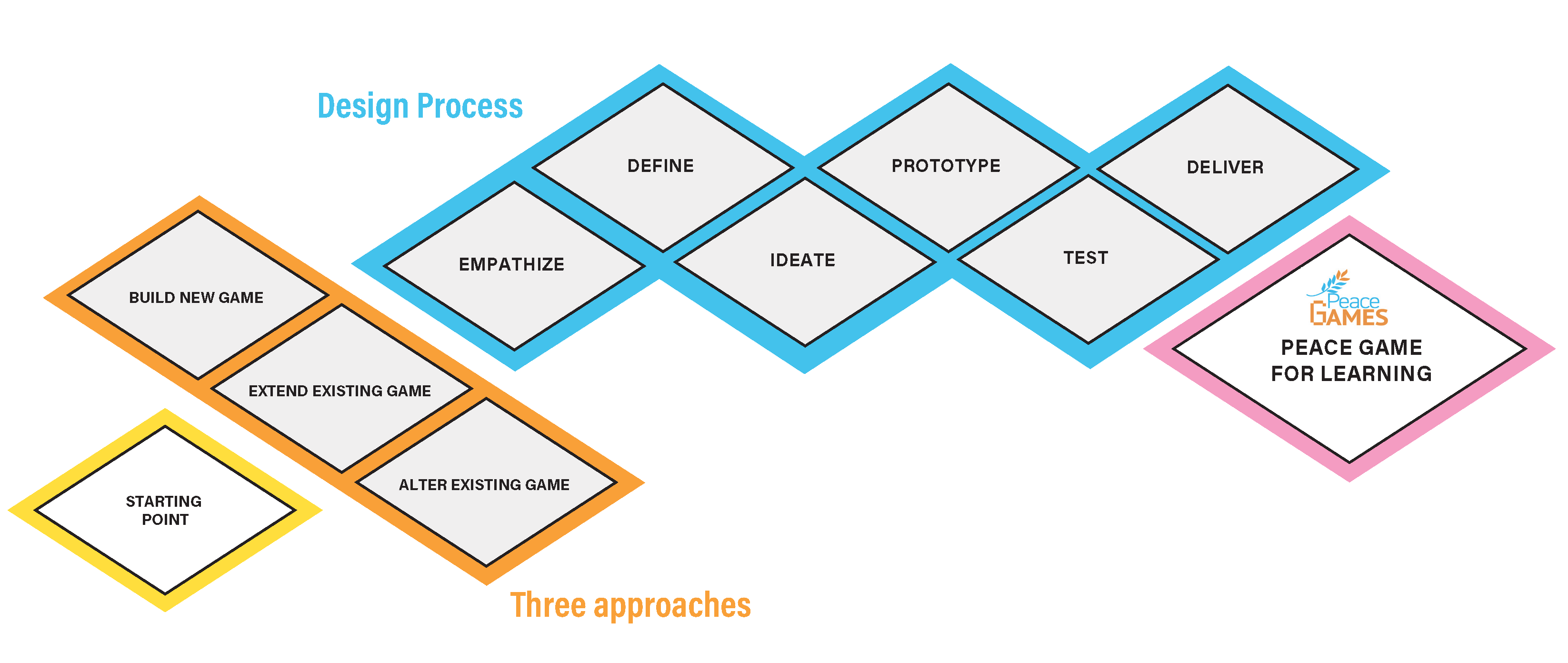Creativity stands at the core of this project as it is considered both as a way to acquire civic and social key competences, and as a competence to acquire and develop in itself via the use and the development of “self-made” games oriented toward Peace Education. Co-founded by the Erasmus+ Programme,
Peace Games aims at diffusing these competences in learners and at helping teachers to make good educational use of games. This is organised through the identification, assessment and support to the use of relevant games (online or in face-to-face) oriented to civic competences, intercultural communication and conflict transformation already existing and provide guidelines and advices for the development of new “self-made” games relevant for particular contexts.
Source Peace Games website












